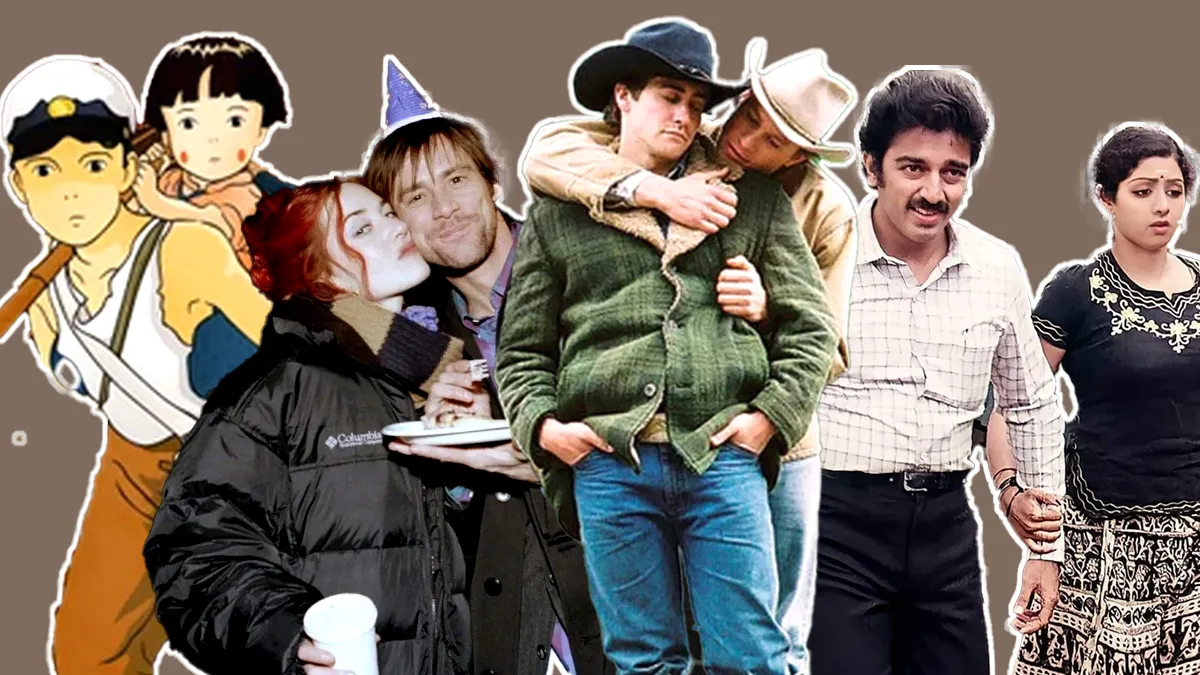
Cinema possesses a unique power to move audiences to tears, yet some of the most emotionally devastating films become the ones we revisit repeatedly. These movies don't promise happy endings or emotional relief, instead, they offer something more profound: understanding and shared human experience.
We deliberately choose soul-crushing films during our lowest moments. We create playlists designed to trigger emotional breakdowns. We willingly revisit heartbreaks and traumas we barely survived the first time around.
The answer lies in honesty. Grief portrayed in cinema doesn't demand to be fixed or resolved. These stories allow us to experience our own emotions safely through someone else's narrative. Pain becomes more bearable when shared, even through a screen.
These films won't leave you feeling better, but they might leave you feeling understood.
Studio Ghibli created this devastating animation that continues haunting viewers decades later. While most people recognise ‘Spirited Away’ and ‘Howl's Moving Castle,’ ‘Grave of the Fireflies’ touches hearts in ways few films achieve.
The story reveals its tragic ending from the opening scene, yet the characters' struggle throughout the movie creates hope with each small victory, making the inevitable conclusion more devastating.
Set during World War II's final months, 14-year-old Seita and his sister Setsuko become orphaned when their mother dies during an air raid in Kobe, Japan. After conflicts with their aunt, they move into an abandoned bomb shelter. With no surviving relatives and depleted emergency rations, the siblings struggle desperately to survive.
When an innocent man faces imprisonment for crimes he didn't commit, his family completely disintegrates. His son works as a street artist while his daughter falls victim to trafficking.
Kamal Haasan based this film on real-life conspiracy, stating: "My household help, all of them, conspired to kidnap my daughter for ransom. They even did a dry run." This personal connection makes the film's devastating impact even more profound.
A man who initially profits from war suddenly decides to save as many lives as possible. Despite his efforts, it's never enough. The list represents life, but outside it, death still claims six million victims.
The most devastating moment occurs when Oskar Schindler breaks down, saying "I could've got more." This scene encapsulates the impossible weight of survivor's guilt and the haunting question of what more could have been done.
After an accident, Nehalata becomes a blank slate, losing all memories. Somu steps forward as her caregiver, becoming her only constant companion and support system.
When she eventually recovers, she remembers everything from her past life, except him. The ending crushes viewers as they witness love that exists without recognition or acknowledgment.
Don't Miss: Why Do We Love Sad Films? Here's What Science Says
Lee cannot escape his past. The people, the town, and the fire that destroyed everything refuse to let him forget. This film refuses to offer a traditional redemption arc, instead, it presents a man simply trying to breathe under unbearable loss.
Viewers keep expecting closure that never arrives. In this story, grief doesn't leave or heal, it quietly moves in and stays permanently.
Anand faces terminal illness with complete awareness of his fate. While everyone around him despairs, he brings light into every room, particularly into Dr Bhaskar's life.
His philosophy, "Zindagi badi honi chahiye, lambi nahi" (Life should be meaningful, not long), defines his approach. When his laughter finally fades, even Babumoshai faces unbearable silence.
Joel and Clementine attempt to erase painful memories of their relationship, but feelings prove impossible to delete. Their story unfolds as a tragic loop of love, pain, and the desperate ache of trying to move forward.
The film haunts viewers with its whispered truth: "We met at a wrong time. That's what I keep telling myself anyway."
Jack and Ennis never had a real chance at happiness together. Society's watchful eyes prevented their love from flourishing openly. They loved each other in fragments, through stolen moments, empty postcards, and a shirt hidden inside another.
Despite Jack's declaration that "it's nobody's business but ours," the world made their love its business. All that remains is a shirt inside another shirt and a love that never got to fully exist.
Before Shiuli's tragic accident, she asks, "Where is Dan?" Dan barely knew her, but that simple question transforms his entire life. While she lies comatose, he stays by her side for months, providing constant companionship.
The devastating reality: she never wakes up to know he was there, creating a profound meditation on unrequited care and silent devotion.
Don't Miss: Female-Led Hindi Films: 10 Powerful Movies Where Women Drive the Plot
Keep reading Herzindagi for more such stories.
Our aim is to provide accurate, safe and expert verified information through our articles and social media handles. The remedies, advice and tips mentioned here are for general information only. Please consult your expert before trying any kind of health, beauty, life hacks or astrology related tips. For any feedback or complaint, contact us at compliant_gro@jagrannewmedia.com.